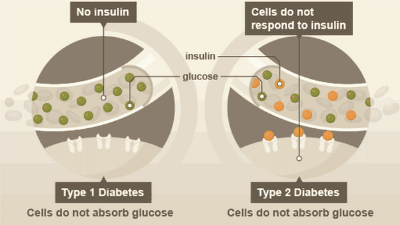About Diabetes
Diabetes is a condition that can
affect anybody at any time in
their life, regardless of how
healthy they may be. At the
moment there is no known cure
for diabetes but research and
work continues to address this
shortfall. Diabetes causes the body to experience problems in relation to the use, distribution and processing of blood sugar (glucose) within the blood.
There are 3 main types of diabetes:
-
Type 1 results from the body's failure to produce insulin, and requires the person to inject insulin or wear an insulin pump.
-
Type 2 results from insulin resistance, a condition in which cells fail to use insulin properly, sometimes combined with an absolute insulin deficiency.
-
Gestational Diabetes occurs when pregnant women without a previous diagnosis of diabetes develop a high blood glucose level. It may precede development of type 2.
WHAT IS DIABETES?

WHAT ARE THE LONG EFFECTS?
Sometimes but not always diabetes can lead to the following:
-
Blood vessel damage
-
Blindness
-
Kidney failure
-
Heart disease
-
Amputations
For many the thought of having diabetes can seem daunting, but as many of the North Staffs Branch members and their families will testify the condition can be controlled and they have managed to lead a full and active life. If you or your family has concerns about the clinical aspects of diabetes, diagnosis or treatment your first point of call should always be your general practitioner (GP), your local hospital/diabetes centre or your healthcare assistant.
